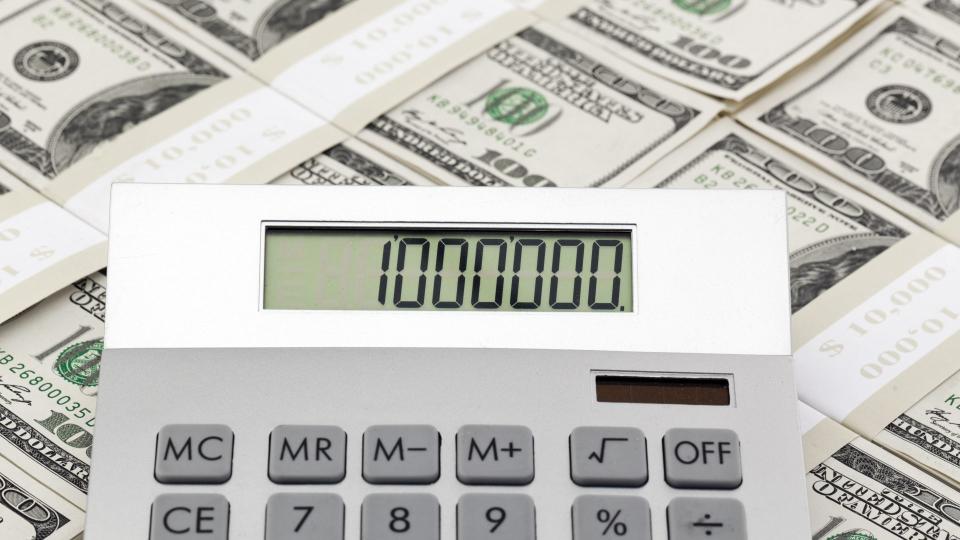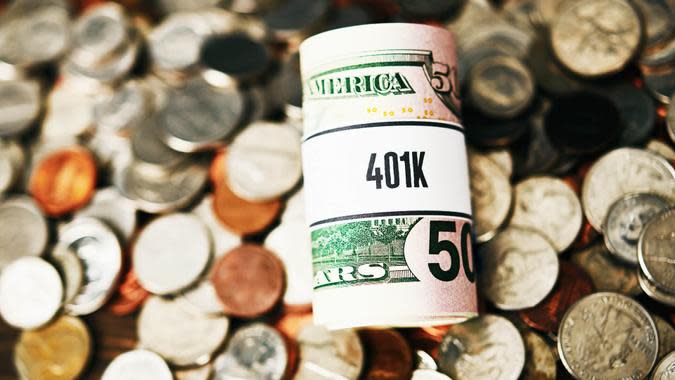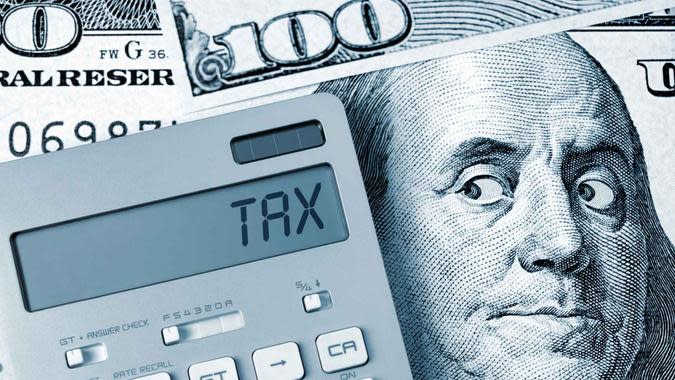6 Money Moves To Make When Your 401(k) Hits $1 Million

The first thing to do if your 401(k) hits $1 million is to pat yourself on the back.
Most Americans struggle with saving for retirement, and only a small percentage reach the mythical seven-digit level. In fact, according to U.S. Census Bureau data, the median IRA/401(k) balance in America is just $30,000.
For You: In 5 Years, These 2 Stocks Will Be More Valuable Than Apple
Try This: 6 Unusual Ways To Make Extra Money (That Actually Work)
So, regardless of how much you earn, saving $1 million in your 401(k) indicates you’re a good saver and have made solid investment choices. But even though you’ve reached a major milestone, it’s not the time to rest on your laurels.
A seven-digit retirement account means you’ll need to plan even more about handling that type of money.
Here are some of the money moves you’ll want to consider making.

Keep Getting That Match
Just because you’ve got $1 million in your retirement account doesn’t mean it’s time to stop. It took dedication and good savings practices to reach that level, so it shouldn’t be hard to continue contributing as much as possible to your retirement account, at least to the level you get your full employer match.
That’s the closest thing to free money you’ll ever get, so maximize that as much as possible. In other words, if someone else — your employer — is willing to finance a portion of your retirement, do all you can to take advantage of that, as it reduces your savings burden.
Learn More: 10 Things You Should Do When Your Child’s 529 Account Reaches $20,000
Check Out: 4 Genius Things All Wealthy People Do With Their Money
Wealthy people know the best money secrets. Learn how to copy them.

Make a Retirement Budget
Your lifestyle will no doubt change after you retire and it’s important to be prepared. While you can’t know exactly what your retirement will be like until you get there, it can pay huge dividends to make a tentative retirement budget as early as possible.
This way, you can estimate how much money you’ll need in your 401(k) to fund a happy retirement.
If a $1 million 401(k) still isn’t enough, you’ll know that you either need to keep pumping up the returns in your account and/or reduce your planned retirement expenses. If it’s more than enough, you can take a little risk off the table in your account.
Read More: 10 Things You Should Do When Your Child’s 529 Account Reaches $20,000

Play a Little Defense
If you took outsized risks in your 401(k) plan to reach that magical $1 million balance, this is a perfect opportunity to play a little defense and protect what you have. Otherwise, with just one bad year, month or even week, depending on how your account is structured, that $1 million could drop to $500,000. This would change your retirement lifestyle dramatically.
While you don’t have to move all your money into short-term CDs, revisit your asset allocation to make sure that you’re not overweighted in speculative investments like penny stocks and cryptocurrency.

Consider Your Tax Situation
The money in your 401(k) is tax-deferred, meaning you don’t really need to worry about taxes while it’s still in the account. But when you do withdraw that money in retirement, it can become a tax headache. While this would hopefully never happen, if you were to take out all $1 million in a single lump sum, you’d be in the top 37% tax bracket, regardless of your filing status.
If you also live in a high-tax state like California, you’d lose more than half of your account in a single blow just to taxes. But if you can withdraw your account more slowly, you may be able to remain in a lower tax bracket. Over time, you could save literally hundreds of thousands in taxes with a prudent withdrawal strategy.

Consult With Experts
Once you’ve got a $1 million nest egg, it’s time to call in the experts, if you haven’t already. With that type of money, you’ll want to at least consult with experts regarding your tax and estate planning situation, your insurance needs and the best way to maximize your portfolio for your future retirement needs. Whether that consultation confirms you’re on the right track or unearths a need for more advanced planning, it’s worth the effort.
Trending Now: Here’s How Much a $1,000 Investment in Ford Stock 10 Years Ago Would Be Worth Today

Stay the Course
If you’ve managed to build a seven-figure 401(k) balance, you might not have to do much at all — you’re already likely doing most things right.
While you might want to do some additional planning and perhaps tweak your asset allocation a bit, the principles that got you to this admirable level — like diligent saving, smart investment planning and living within your means — will continue to serve you well.
More From GOBankingRates
These 10 Used Cars Will Last Longer Than an Average New Vehicle
6 Things to Try This Week if You're Behind on Your Savings Goals
4 Reasons Retired Women Need More Money Than Men -- And What To Do About it
This article originally appeared on GOBankingRates.com: 6 Money Moves To Make When Your 401(k) Hits $1 Million

 Yahoo Finance
Yahoo Finance 